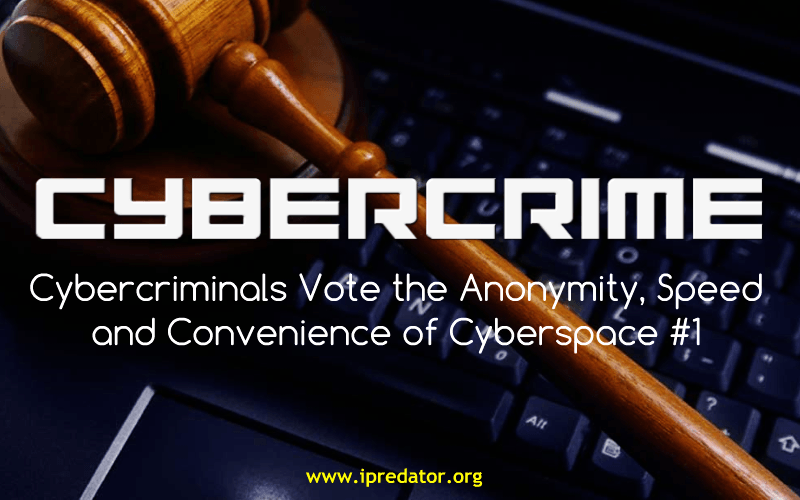
What is Cybercrime & iPredator
by
Michael Nuccitelli, Psy.D.
Cybercrime is one typology included in the concept of iPredator, which is a theoretical construct developed by New York State licensed psychologist and forensic psychology consultant, Michael Nuccitelli, Psy.D. Provided below is information about cybercrime and the relevant cybercriminal definition concepts of iPredator.
Cybercrime: Cybercrime is defined as crimes and criminal activity using Information and Communications Technology (ICT) as the tools to target victims or businesses. All forms of cybercrime involve both ICT and a targeted victim(s). Cybercrime is segmented into two distinct categories involving the focus of the cybercriminal activities.
These activities are focalized on the technology of Information and Communications Technology (ICT) to achieve the cybercriminal’s aims for personal and financial gain or targeted at others or businesses. When the individual is the main target of cybercrime, ICT is the tool rather than the target. These are the crimes, which have existed for centuries in offline societies. Cybercriminals utilize technological tools to increase their potential pool of victims and make them difficult to identify and apprehend.
Cybercrime targets people, property or governments using ICT. Presently, the most common types of cybercrime are identity theft, hacking, online scams, fraud, computer system attacks, illegal online content, prohibited online content and digital piracy. Scams, theft and fraud have existed long before the development of information technology. As Information and Communications Technology (ICT) becomes widespread, cybercrime prevention, education and protection are areas requiring immediate attention. The Information Age has many benefits to humanity, but it is vital to identify and prevent the malevolent and nefarious elements that exist in cyberspace.

iPredator
iPredator: A person, group or nation who, directly or indirectly, engages in exploitation, victimization, coercion, stalking, theft or disparagement of others using Information and Communications Technology [ICT]. iPredators are driven by deviant fantasies, desires for power and control, retribution, religious fanaticism, political reprisal, psychiatric illness, perceptual distortions, peer acceptance or personal and financial gain. iPredators can be any age or gender and are not bound by economic status, race, religion or national heritage. iPredator is a global term used to distinguish anyone who engages in criminal, coercive, deviant or abusive behaviors using ICT. Central to the construct is the premise that Information Age criminals, deviants and the violently disturbed are psychopathological classifications new to humanity.
Whether the offender is a cyberstalker, cyber harasser, cybercriminal, online sexual predator, internet troll, cyber terrorist, cyberbully, online child pornography consumer/distributor or engaged in internet defamation or nefarious online deception, they fall within the scope of iPredator. The three criteria used to define an iPredator include:
- A self-awareness of causing harm to others, directly or indirectly, using ICT.
- The usage of ICT to obtain, exchange and deliver harmful information.
- A general understanding of Cyberstealth used to engage in criminal or deviant activities or to profile, identify, locate, stalk and engage a target.
Unlike human predators prior to the Information Age, iPredators rely upon the multitude of benefits offered by Information and Communications Technology [ICT]. These assistances include exchange of information over long distances, rapidity of information exchanged and the seemingly infinite access to data available. Malevolent in intent, iPredators habitually deceive others using ICT in the abstract and artificial electronic universe known as cyberspace. Therefore, as the internet naturally offers all ICT users anonymity, if they decide, iPredators actively design online profiles and diversionary tactics to remain undetected and untraceable.
Cyberstealth, a sub-tenet of iPredator, is a covert method by which iPredators attempt to establish and sustain complete anonymity while they engage in ICT activities planning their next assault, investigating innovative surveillance technologies or researching the social profiles of their next target. Concurrent with the concept of Cyberstealth is iPredator Victim Intuition [IVI], an iPredator’s IVI is their aptitude to sense a target’s ODDOR [Offline Distress Dictates Online Response], online & offline vulnerabilities, psychological weaknesses, technological limitations, increasing their success of a cyber-attack with minimal ramifications.
Free Cybercrime Assessment Links
Cybercrime Protection Checklist (CCPC)
iPredator Probability Inventory-Cybercrime (IPI-C)
Michael Nuccitelli, Psy.D.
Michael Nuccitelli, Psy.D. is a NYS licensed psychologist, cyberpsychology researcher and online safety educator. In 2009, Dr. Nuccitelli finalized his dark side of cyberspace concept called iPredator. Since 2010, he has advised those seeking information about cyberbullying, cyberstalking, cybercriminal minds, internet addiction and his Dark Psychology concept. By day Dr. Nuccitelli is a practicing psychologist, clinical supervisor and owner of MN Psychological Services, PLLC. After work and on the weekends, he volunteers helping online users who have been cyber-attacked. Dr. Nuccitelli’s is always available to interested parties and the media at no cost. This website and everything created by Dr. Nuccitelli is educational, free and public domain.

